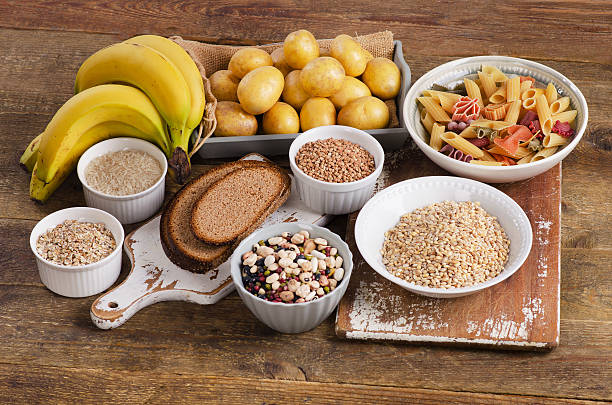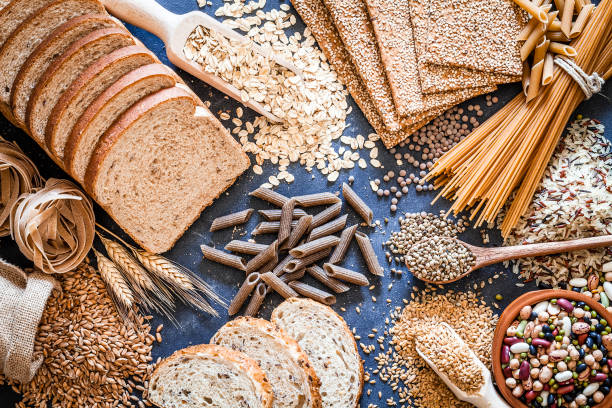Have you ever felt confused about what you should and shouldn’t eat when it comes to carbohydrates? It seems like every diet or nutrition article has a different opinion on whether carbs are friends or foes. The truth about carbs is not as black and white as it seems. While some carbohydrates are essential for energy and overall health, others might contribute to unwanted weight gain and other health issues. In this post, we’ll dive deep into the science behind carbs, exploring the differences between good and bad carbohydrates, and offer practical insights on how to include them wisely in your diet.
Understanding Carbohydrates
Carbohydrates are one of the three primary macronutrients that our bodies rely on for energy. They come in different forms and play various roles in our nutrition. The basic distinction is between simple and complex carbohydrates:
- Simple Carbohydrates: These are made of one or two sugar molecules. They are quickly digested, leading to a rapid spike in blood sugar levels. Examples include table sugar, fruit juices, and candy.
- Complex Carbohydrates: Composed of longer chains of sugar molecules, these take longer to break down and provide a steady source of energy. Whole grains, legumes, and vegetables are rich in complex carbs.
Understanding these differences is key to grasping the truth about carbs. It’s not about eliminating them but choosing the right kinds to support your health goals.
Good Carbs: The Healthful Allies
Not all carbohydrates are created equal. Good carbs, typically found in whole, unprocessed foods, are loaded with fiber, vitamins, and minerals. They offer a steady release of energy, keep you feeling fuller for longer, and support overall well-being. Here are some examples:
- Whole Grains: Brown rice, quinoa, oats, and whole wheat bread provide sustained energy due to their fiber content.
- Fruits and Vegetables: Besides their vitamins and antioxidants, fruits and vegetables come packed with natural sugars and fiber.
- Legumes: Beans, lentils, and chickpeas are not only high in protein but also deliver complex carbohydrates that stabilize blood sugar levels.

Incorporating these carbs into your meals can help maintain energy levels throughout the day, improve digestive health, and even reduce the risk of chronic diseases like diabetes and heart disease.
Bad Carbs: The Culprits of Energy Crashes
On the flip side, bad carbohydrates are usually found in processed foods and refined sugars. These carbs are stripped of their natural fiber and nutrients, causing rapid spikes and drops in blood sugar levels. Over time, a diet high in these types of carbs can lead to various health problems, including weight gain, insulin resistance, and an increased risk of type 2 diabetes. Common examples include:
- Refined Grains: White bread, white rice, and pastries have been processed to remove beneficial fiber and nutrients.
- Sugary Snacks and Beverages: Soda, candy, and baked goods often contain high levels of added sugars that provide little nutritional value.
- Fast Food: Many fast food items are not only high in unhealthy fats but also loaded with refined carbohydrates.

Avoiding or minimizing these bad carbs can help stabilize your blood sugar levels, keep your energy more consistent, and reduce the risk of long-term health issues.
The Science Behind Carbs
When exploring the truth about carbs, it’s essential to understand the underlying science. Carbohydrates are broken down into glucose, the primary energy source for the body. However, the rate at which they are digested and absorbed can vary significantly:
- Glycemic Index (GI): This is a measure of how quickly carbohydrates in food raise blood sugar levels. Foods with a high GI are quickly digested, causing rapid spikes, whereas low GI foods provide a slow, steady release of energy.
- Fiber Content: High-fiber foods slow down the digestion process, leading to more gradual increases in blood sugar. They also aid in digestion and contribute to feelings of fullness.
- Nutrient Density: Good carbs come packed with additional nutrients such as vitamins, minerals, and antioxidants, which are essential for overall health.
Research shows that diets high in refined carbs can lead to fluctuations in blood sugar, which may cause energy crashes, irritability, and even contribute to weight gain over time. Conversely, a diet rich in whole, unprocessed carbohydrates helps maintain balanced blood sugar levels, supports digestive health, and provides the sustained energy necessary for daily activities.
Practical Tips for Balancing Your Carb Intake
Achieving a balanced diet means understanding how to incorporate the right types of carbs into your meals. Here are some actionable tips to help you navigate the often confusing world of carbohydrates:
1. Choose Whole Over Refined
Make a conscious effort to replace refined grains with their whole counterparts. Swap white bread for whole wheat or choose brown rice instead of white rice. This simple change can significantly increase your fiber and nutrient intake.
- Actionable Tip: Gradually replace processed foods with whole grains. Start with one meal per day, then build from there.
2. Prioritize Fiber-Rich Foods
Fiber is essential not only for digestion but also for keeping you full and stabilizing blood sugar. Foods like fruits, vegetables, legumes, and whole grains are excellent sources of fiber.
- Actionable Tip: Aim to include a serving of fiber-rich foods in every meal. Consider adding berries to your breakfast or a side salad with your dinner.
3. Monitor Portion Sizes
Even when consuming good carbs, portion control is key. Overeating any type of carbohydrate can lead to excess calorie consumption, which might hinder weight management efforts.
- Actionable Tip: Use smaller plates and be mindful of your serving sizes. This helps ensure you get the benefits of carbs without overdoing it.
4. Read Nutrition Labels
Get into the habit of checking nutrition labels. Look for products with minimal added sugars and a high fiber content. This will help you make more informed choices about the carbs you consume.
- Actionable Tip: Compare similar products and choose the one with lower sugar and higher fiber content.
5. Plan Balanced Meals
Integrate a mix of macronutrients—carbohydrates, proteins, and fats—in every meal. This not only helps balance blood sugar levels but also ensures you’re getting a well-rounded array of nutrients.
- Actionable Tip: Create a meal plan that includes a variety of whole foods. For example, pair grilled chicken with quinoa and steamed vegetables for a balanced dinner.
Debunking Common Myths About Carbs
The conversation around carbs is filled with myths and misconceptions. Here are a few that often cause confusion:
- Myth 1: All Carbs Are Bad.
Reality: Carbohydrates are an essential part of a healthy diet. The key is to focus on the quality of the carbs you consume rather than eliminating them entirely. - Myth 2: Low-Carb Diets Are the Best for Weight Loss.
Reality: While reducing bad carbs can help with weight management, completely cutting out carbohydrates can deprive your body of essential energy and nutrients. - Myth 3: Carbs Cause Diabetes.
Reality: Type 2 diabetes is more closely linked to overall dietary patterns, physical activity, and genetics rather than carbohydrate consumption alone. Moderation and quality are crucial.
Real-World Applications
Understanding the truth about carbs is not just about theory—it has practical implications for everyday life. Here are some ways to apply this knowledge:
- Meal Planning: Start your day with a balanced breakfast that includes whole grains, such as oatmeal with fresh fruit, rather than sugary cereals.
- Snack Smart: Choose healthy snacks like fruit, nuts, or whole grain crackers instead of high-sugar or refined options.
- Educate Yourself: Stay informed about the glycemic index and fiber content of foods to make better choices in the grocery store.
- Personal Experimentation: Monitor how different types of carbs affect your energy levels and mood. Adjust your diet accordingly to find the right balance for your body.
Integrating Carbs into a Holistic Diet
Carbohydrates, when chosen wisely, are not just a source of energy but a foundation for overall health. Balancing good and bad carbs is part of a holistic approach to nutrition that includes a variety of whole foods, lean proteins, and healthy fats. This balanced approach not only fuels your body but also supports mental clarity, energy levels, and long-term well-being.
For those interested in diving deeper into the benefits of a holistic diet, you might find insights in The Science Behind Superfoods: Are They Worth It?. This post explores another important aspect of nutrition and offers tips on how to integrate nutrient-rich foods into your daily routine.
Later on your journey to better health, you can explore additional resources on self-care, mindfulness, and personal growth by visiting venzec.icu. This platform offers a wealth of information to support your path toward a balanced and fulfilling lifestyle.
Final Thoughts
The truth about carbs is nuanced and requires a balanced perspective. Good carbohydrates provide essential nutrients, fiber, and sustained energy, making them indispensable to a healthy diet. On the other hand, bad carbs, typically found in processed and sugary foods, can contribute to a range of health issues when consumed in excess.
By making informed choices, focusing on whole foods, and being mindful of portion sizes, you can harness the benefits of carbohydrates without falling prey to their potential downsides. Remember, it’s not about eliminating carbs from your diet; it’s about choosing the right types and integrating them into a balanced, holistic lifestyle.
Empower yourself with knowledge and experiment with your eating habits to discover what works best for you. A thoughtful approach to carbohydrate consumption can lead to better energy levels, improved health, and a more enjoyable relationship with food.









